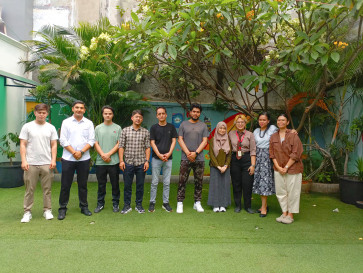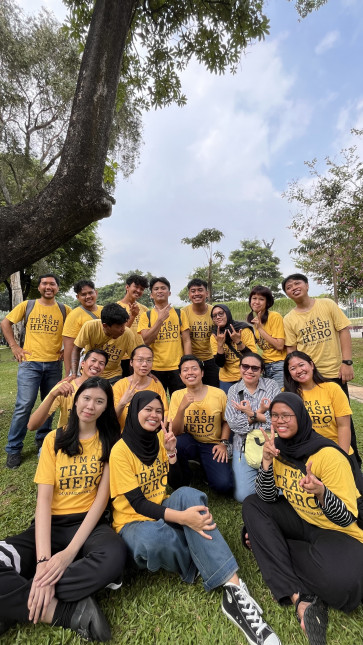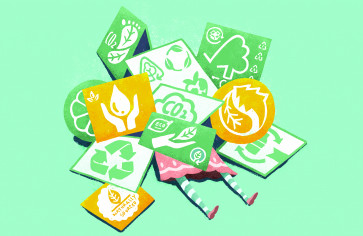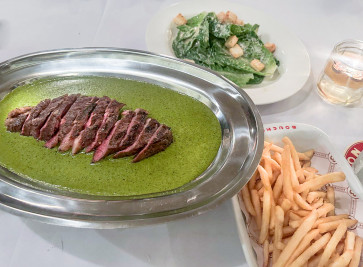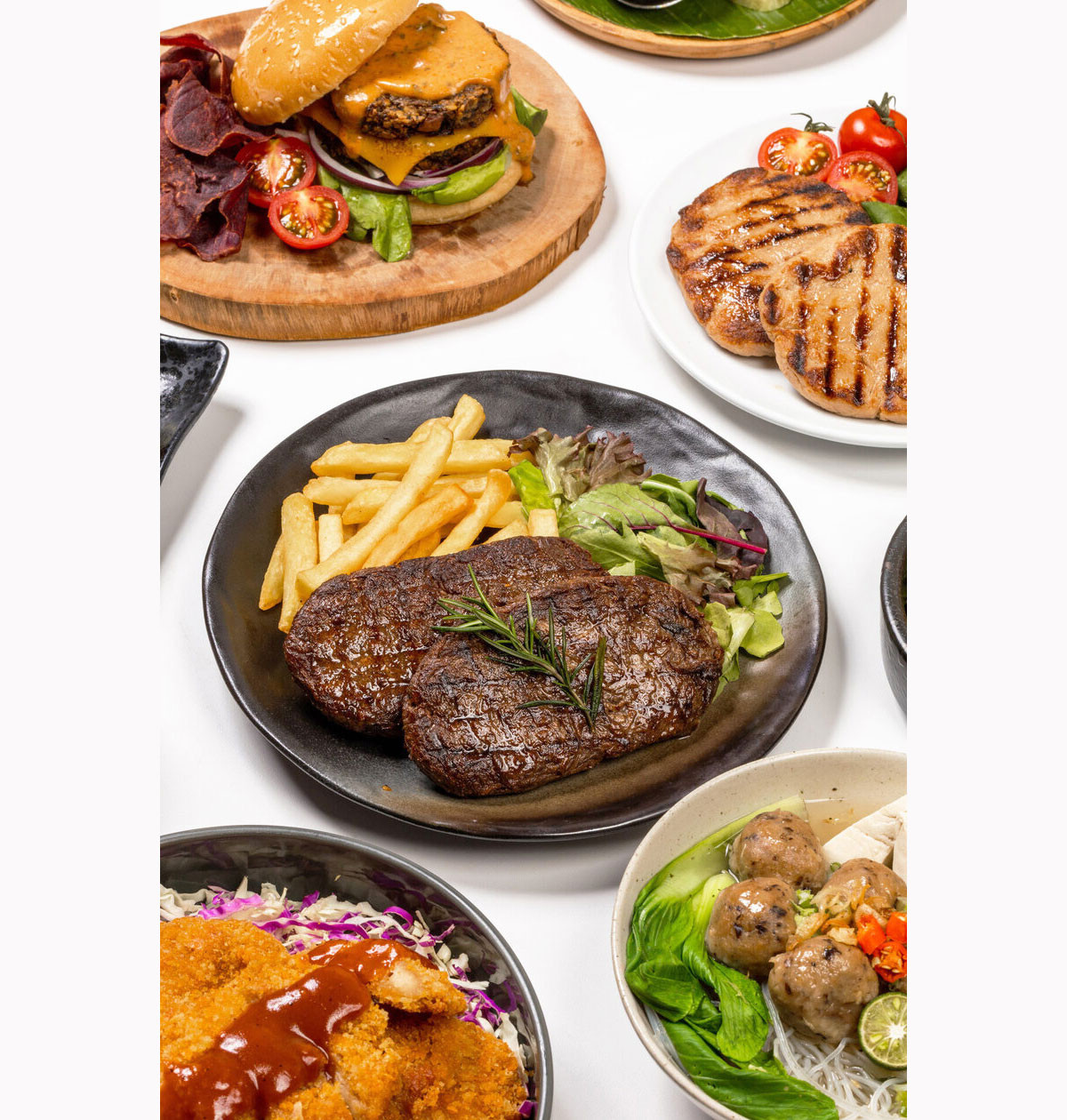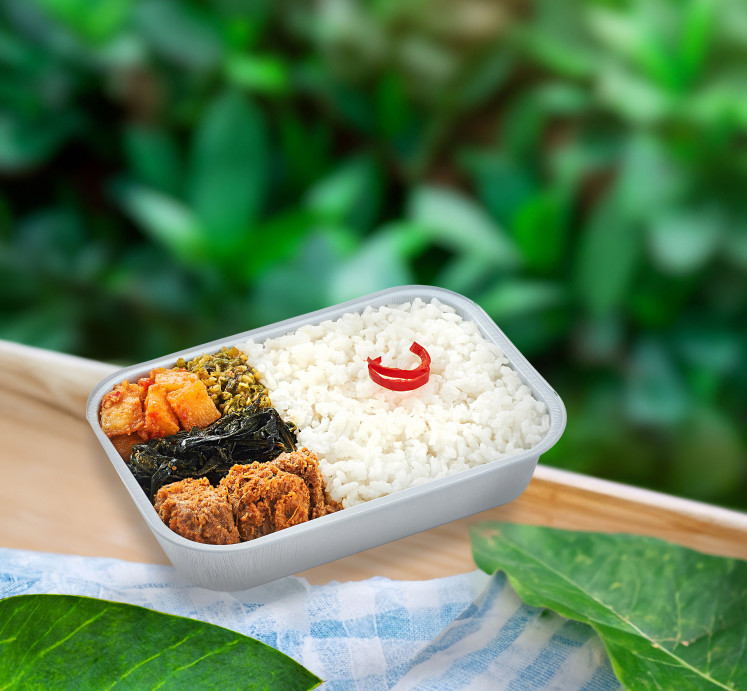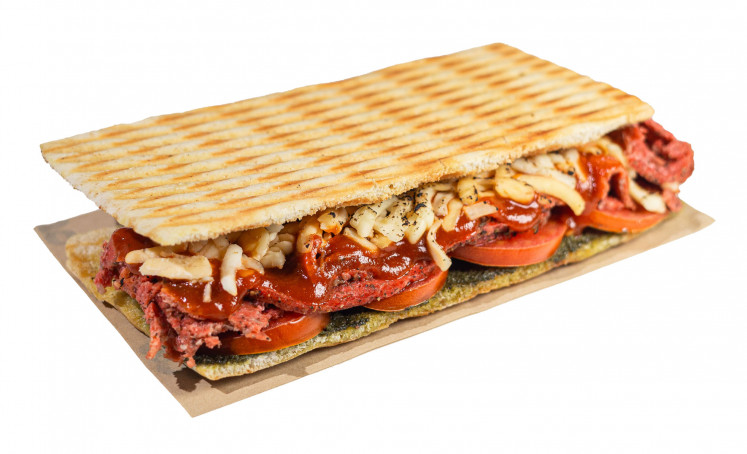When we were kids, it was about sneaking broccoli into chicken nuggets. Over time, our parents had to get more creative to trick us into eating vegetables. But now, can adults like us still learn new dietary tricks?
Enter vegan-friendly restaurants. The likes of Burgreens, Salad Stop and Fedwell have been teaching us to eat vegetables sans the dinosaur-shaped nuggets for years. But the team behind Burgreens wanted to make it even easier for us to consume plant-based food and so they established Green Rebel, a start-up that produces mushroom-based protein and dairy-free cheese we can find in groceries or order online.
“We want to make healthy and environmentally friendly food easily accessible,” explained Helga Angelina, the cofounder of Green Rebel and Burgreens.
Green Rebel has three product lines: ready-to-cook, ready-to-eat and dairy-free cheese. “This answers the needs of busy people who don't have time to cook or maybe can't cook,” she added.
Beyond just being accessible, though, in this new world of plant-based culinary technology, each broccoli can now look like a brontosaurus-shaped nugget.
As someone who volunteered to be a guinea pig for this article, I can tell you the “meat” is more tender than wagyu beef, and the cheese was heaven for my lactose-intolerant self.

Thank you!
For signing up to our newsletter.
Please check your email for your newsletter subscription.
Culinary innovation
Mixing innovation and culinary genius, Green Rebel’s factory uses texturization and emulsion technology to create realistic meat alternatives. The former changes the texture of mushrooms to mimic the fiber of meat, while emulsion technology combines the mushrooms with soybeans to make up for the lack of protein.
In terms of flavor, Helga said that was a culinary challenge, not a technological one. Even if the texture can fool the untrained tongue, the real test is always in the taste.
Read also: Indonesians’ not-so-secret love affair with sambalThis guinea pig chose to try the Padang-style rendang curry (a coconut-milk-based stew) and she, along with her family who had no idea they were part of an experiment, were not disappointed.
“We use spices that are used for rendang in general. For balado [West Sumatran spicy chili sauce], we make it using chilies and onions. The technology is for making the texture, but we get the flavor from spices,” she said, adding that they prioritize locally sourced natural ingredients to maintain authenticity.
That’s for the ready-to-eat ones. Their ready-to-cook products can be used as ingredients by those who want to perform culinary innovations in their own kitchens. They just have to look for one of Green Rebel’s products in the grocery section for frozen foods, which, Helga notes, don’t all deserve their unhealthy reputation.
“Frozen food is not necessarily bad, actually. Freezing technology is actually a technology to extend shelf life without preservatives,” she explained. But the frozen food we usually see — processed meat such as nuggets and sausages — those, she said, “are indeed inherently bad”.
Not just for vegans
To be clear, a consumer does not have to be vegan to consume Green Rebel. In fact, the company partners with carnivore-friendly brands, like IKEA, Starbucks and AirAsia.
“The funny thing is, Burgreens and Green Rebel [...] at least 80 percent of our consumers are not vegan. Our consumers are what we call flexitarians, or flexible vegetarians,” she explained.
Flexitarians are already aware of the health and sustainability issues related to the meat industry, but are not quite ready to fully commit to vegetarianism.
After all, shunning bacon for a week is hard enough for most of us.
Read also: Ready, set, cook: How cooking shows transcend entertainment
If you’re thinking of joining the vegan or vegetarian bandwagon, or dipping your toes into the #MeatlessMondays trend, it might not be such a shock to your system.
Indonesia has one of the world’s climate-friendliest dietary guidelines, according to a 2020 report from EAT, an Oslo-based non-profit organization dedicated to transforming the global food system through science. This surprising yet delightful achievement is due to the prevalence of non-meat proteins like tofu and tempeh on our dinner tables.
Helga added that our Indonesian ancestors are “semi-vegetarians” who rarely ate meat, once a week at most.
“On average, they get protein from nuts. We've been eating it for hundreds of years,” Helga said. “So, we are new to the meat alternatives, new to the dairy-free alternatives. But actually, plant-based food is part of our food culture.”
Maybe the key to learning new dietary tricks is to look further into the past.






